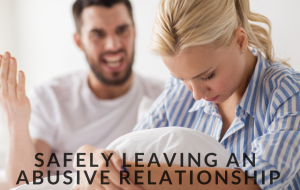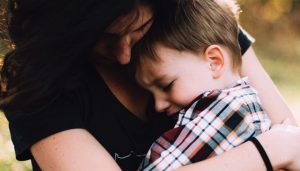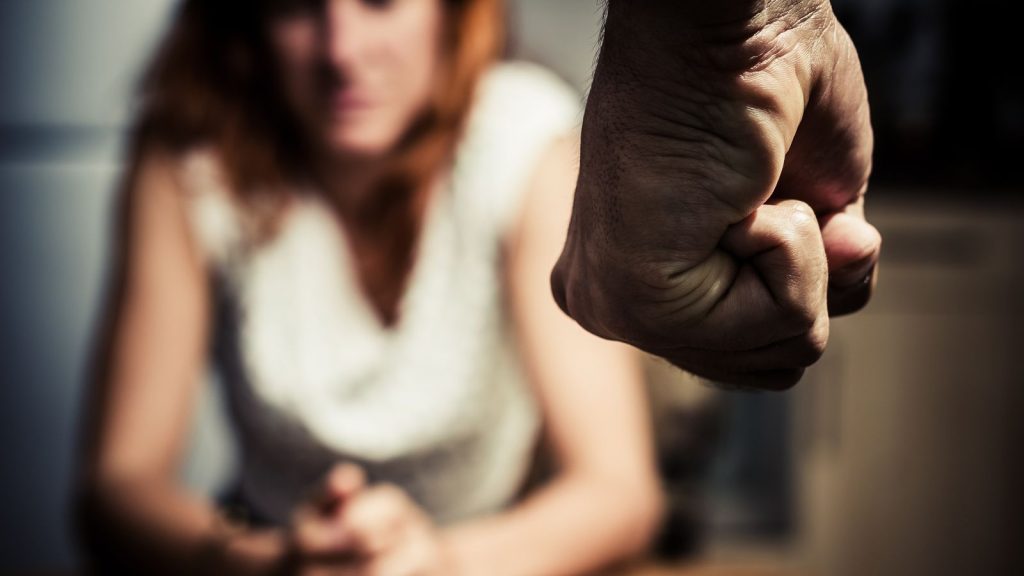Contents
- 1 What Are Abusive Relationships?
- 2 Types Of Abusive Relationships
- 3 Why Do People Stay In Abusive Relationships?
- 4 What are Potential Dangers If You Stay in an Abusive Relationship?
- 5 Leaving An Abusive Relationship Safely
- 6 Tips For Leaving An Abusive Relationship
- 7 Healing From An Abusive Relationship
- 8 Conclusion
- 9 A Word From Therapy Mantra
What Are Abusive Relationships?

An abusive relationship is one in which one partner uses tactics of intimidation, humiliation, manipulation, and violence to control the other partner. These relationships are characterized by fear, power dynamics, and dependency. For how to leave an abusive relationship. You should make a safety plan, gather your evidence, and reach out to your support system. You can also seek help from a domestic violence shelter or hotline.
Types Of Abusive Relationships
There are many different types of abusive relationships. Some of the most common include physical abuse, emotional abuse, financial abuse, and sexual abuse.
Physical Abuse
Physical abuse is any form of violence or physical aggression inflicted on someone else. It can include slapping, hitting, punching, shoving, choking, and using weapons.
Emotional Abuse
Emotional abuse is any type of behavior that intimidates, humiliates, or isolates someone else. It can involve verbal attacks, threats, name-calling, insults, and isolation from friends and family.
Financial Abuse
Financial abuse is when one partner uses money or financial resources to control the other partner. This can include withholding money, preventing the victim from working or forcing them into financial dependence.
Sexual Abuse
Sexual abuse is any type of sexual behavior that is not consensual or coerced. It can include forced sex with friends and strangers, forcing the victim to watch pornography, and withholding sex as a form of punishment.
Why Do People Stay In Abusive Relationships?

There are many reasons people stay in abusive relationships. The following list may be helpful:
- Fear of the abuser and of what he or she might do if you leave.
- Love for the abuser–people often feel that they want to help their partner change, or that perhaps the abuser only acts abusively when he or she is drinking or stressed, or that eventually, things will get better.
- Love for the children in the relationship–parents may feel that they have invested too much time in their relationship to leave now, and/or are afraid of where their children would live if they were not with their father.
- Guilt–people often feel guilty for not having done something to prevent the abuse, or they blame themselves for causing the violence.
- Financial dependency--if you are financially dependent on your partner, it may be difficult to leave an abusive relationship because of a lack of money and resources.
What are Potential Dangers If You Stay in an Abusive Relationship?
There are many potential dangers if you stay in an abusive relationship. The following list may be helpful:
- Your physical safety is at risk. In 80-90% of cases where a woman is murdered by her male partner, she has been trying to leave the relationship. In addition, abuse typically gets worse over time, not better.
- Abuse may lead you to develop medical problems such as asthma, irritable bowel syndrome, ulcers, and depression. It can also negatively affect your appetite and sleep patterns. In addition, the stress of living with abuse can make it more difficult for your body to fight off infections.
- Abuse often leads to substance use/abuse.
- You may lose custody of your children in a divorce, and/or they may be harmed by the abuse.
Leaving An Abusive Relationship Safely

When leaving an abusive relationship it is important to plan ahead and make a safety plan. This includes putting together a bag of essential belongings, leaving money for transportation and living expenses, collecting evidence to show the abuse that has taken place, getting support from friends and family, and seeking help from a domestic violence shelter or hotline.
Bag Of Essentials
When preparing to leave an abusive relationship it is important to put together a bag of essentials. This should include things like identification, money for transportation and living expenses, clothes, important documents, medication, keys to your car or house, cell phone charger, birth control if applicable. Put together a safety plan with the assistance of a support person. Keep an emergency bag containing important papers, money, clothing, and other items in a safe place. If you have children, make arrangements for their care in case you need to leave quickly.
Leaving Money For Your Living Expenses
When planning to leave an abusive relationship it is important to plan ahead for your living expenses. This can include money for food, housing costs, transportation costs, and other necessary living expenses.
Document Your Abuse
When planning to leave an abusive relationship it is important to document as much evidence as possible of the abuse that you have suffered. This includes taking photos of injuries such as bruises and scars, saving text messages and voicemails, keeping copies of medical records, and saving notes about incidents. Gather evidence of the abuse–write down times and dates of abusive incidents; save text messages, voicemails, and emails; take pictures of injuries; make copies of police reports.
Get Support From Friends And Family
When planning to leave an abusive relationship it is important to get support from your friends and family. This can include someone who will be able to pick you up when you leave. Someone who will let you stay with them for a while until you get on your feet. And someone to help you with the logistics of leaving.
Seek Help From A Shelter Or Hotline
When preparing to leave an abusive relationship it is important to seek help from a domestic violence shelter or hotline. These can include local ones which you can find online, as well as national hotlines such as the National Domestic Violence Hotline.
Tips For Leaving An Abusive Relationship

The following list is helpful when thinking about how you might leave an abusive relationship:
• Reach out–talk to a trusted family member, friend, neighbor, or co-worker about the abuse.
• Do not give the person abusing you an opportunity to hurt you. For example, if your partner is calling you names, turn off or unplug the phone so that you are not tempted to answer when he or she calls.
• If possible, leave during the day while your partner is at work. This decreases the likelihood of an incident occurring.
• Make it clear to your children that they should not protect their father if they come home and find you with a black eye. In addition, they should not be afraid to tell their teacher if dad is mean when mom isn’t around.
• If you have children, think about whether it would be safer for them to live primarily or exclusively with you. Keep in mind that most abusers do not allow their partners to take the children away without a fight. If you decide to leave, think about how you will help your children adjust if their father continues to see them regularly.
• Keep a record of the violence and report incidents immediately to the police. This helps the police build a case against your partner, should they become involved.
• Get medical attention even if there are no visible injuries.
• Work with your support person to develop a safety plan for leaving the relationship; it might include putting together an emergency bag (see above) or finding a place you can go until you are more safely settled.
• Look into supervised visitation sites that are intended for the safety of children. The abuser is not allowed to enter these locations, which may be safer than your home until you are able to find a more permanent solution.
When The Abuse Becomes Lethal
If you fear for your life or health, consider leaving the abusive relationship immediately. And seeking the help of a domestic violence shelter, therapist, or another support person who can provide housing and other services. If you fear for your life and need to leave quickly, call 911 and ask police officers to escort you safely out of the house.
When Abuse is Sexual in Nature
If you are being forced to have sex against your will, you should leave immediately because it is the only way to stay safe. If you are living with someone who has sexually abused or raped your children, take them and leave. Sexual assault puts everyone at risk for short-term and long-term physical, emotional and psychological problems.
If You Are Hurting Your Children

Get help immediately if you find yourself hurting your children. This is a serious sign that you need to seek help and not the type of behavior that can be improved by increased self-awareness or increased “parenting skills.” Children who are physically abused, sexually assaulted, or neglected suffer short-term and long-term effects from their exposures. It is important for parents to take seriously any awareness that they may be repeating the patterns of their own abusers.
If You Are Hurting Yourself
Physical and emotional pain cannot be fixed by your partner or anyone else. Get help immediately to break the cycle of violence that is placing you and others in danger. There are hotlines and support groups that can provide referrals to therapists, counselors, support groups, and other services.
Healing From An Abusive Relationship
To leave an abusive relationship can be one of the most difficult things a person ever does. It takes courage to break the cycle of violence and to start the process of healing. There are many services available to help victims of domestic violence, including hotlines, support groups, counseling, and therapy.
The most important thing is to get started on the healing process. This may mean talking to a therapist or counselor, attending support group meetings, or simply reaching out to friends and family for support. It is important to remember that you are not alone and that there are people who care about you and want to help.
Therapy

Therapy can be a very helpful tool for those who have been in abusive relationships. Seeking help can provide the opportunity to process the abuse and work on changing your behavior, as well as developing coping skills and behaviors that will help you reintegrate into society. Therapy may also allow those who have abused an opportunity to heal from the pain of their past.
• Therapy can help empower you and give you the tools to make the changes necessary to protect yourself from future abuse.
• Therapy can be a way of learning about new behaviors, thoughts, and feelings that were unknown before the abusive relationship. These skills will allow you to identify when your partner is becoming abusive or escalating their behavior towards you. You may learn valuable strategies to calm yourself down when you are feeling scared or nervous.
• Therapy can also help the victims of abuse to learn about themselves and have a better understanding of their own emotions, feelings, and behaviors. Sometimes people may feel personally responsible for what happened in the abusive relationship. Because they did not realize that certain behavior was a result of being a victim of an abusive relationship.
• Therapy can provide a safe place to discuss unresolved issues with your partner and try to reconcile your past relationship. This will allow you to move forward in your life without having lingering feelings of anger or resentment towards your ex-partner.
Support Groups
Support groups are another tool that may be extremely helpful for those leaving abusive relationships. These groups offer a safe place for individuals who have been in similar situations to come together and support one another while they work on building new lives.
• Group meetings can be very helpful in that they provide survivors of abuse with an opportunity to discuss their issues and problems with people who truly understand what you’re going through and do not judge you.
• You may not feel comfortable speaking freely in front of your friends and family about the abuse you suffered at the hands of your partner. This is why it can be helpful to seek out support groups where people are understanding and supportive.
• It can also help victims of abuse find others who they may identify with when they feel that they were the only person in the world that had to go through this kind of pain.
• These groups may also help an individual feel less isolated. By making them aware that there are other people out there who feel exactly like they do. The feeling of having no one you can talk to about what you’re going through can be unbearable. And can make the healing process much more difficult.
Counseling

Individual counseling can provide you with the opportunity to work with someone who understands what you are going through. And is not biased or prejudiced against you no matter what. You will be able to share your feelings and thoughts with someone who will listen without judgment. But instead offer constructive feedback, support, and guidance.
• Having the opportunity to share your thoughts and feelings with someone who is not biased or prejudiced against you can be very helpful. When you are trying to process the abuse you’ve suffered. It can also help people to learn about themselves. What they would like out of their future relationships and how to prevent this type of behavior in the future.
• Counseling can help those who have been victims of abuse to learn about their own behavior. And what they would like to change about themselves. So they do not repeat the same mistakes in future relationships. If you see a counselor, you will be able to work with someone who will support you through this difficult time. And help guide you through your healing process.
Healing and Recovery
After you leave the abusive relationship, counseling and support groups can be an indispensable source of strength. And resolve as they work through the pain of their past relationship. If you feel like you would benefit from having a safe place to go where people understand what you’ve been through. Then you should consider seeking out these services in your local community.
- You can find support groups and counseling for relationships of all types. Including those suffering from domestic violence, alcoholism, drug addiction, incest, sexual abuse. And more through your local phone book or online directory.
- Being able to connect with people who have had similar experiences can be very helpful. Because it allows you to not feel so alone in the world when you are suffering from abuse.
- It can help people who have been through abusive relationships. To learn they are not alone in their feelings of anger, humiliation, and betrayal. When they see other people have gone through the same thing they have.
Conclusion
Leaving an abusive relationship can be one of the most difficult things a person ever does. However, it is possible to overcome the pain and emotional trauma caused by abuse with time, support, and healing. If you are considering leaving an abusive relationship, please reach out for help. There are many resources available to victims of domestic violence, including counseling, support groups, and hotlines.
A Word From Therapy Mantra
Your mental health — Your psychological, emotional, and social well-being — has an impact on every aspect of your life. Positive mental health essentially allows you to effectively deal with life’s everyday challenges.
At TherapyMantra, we have a team of therapists who provide affordable online therapy to assist you with issues such as depression, anxiety, stress, workplace Issues, addiction, relationship, OCD, LGBTQ, and PTSD. You can book a free therapy or download our free Android or iOS app.


